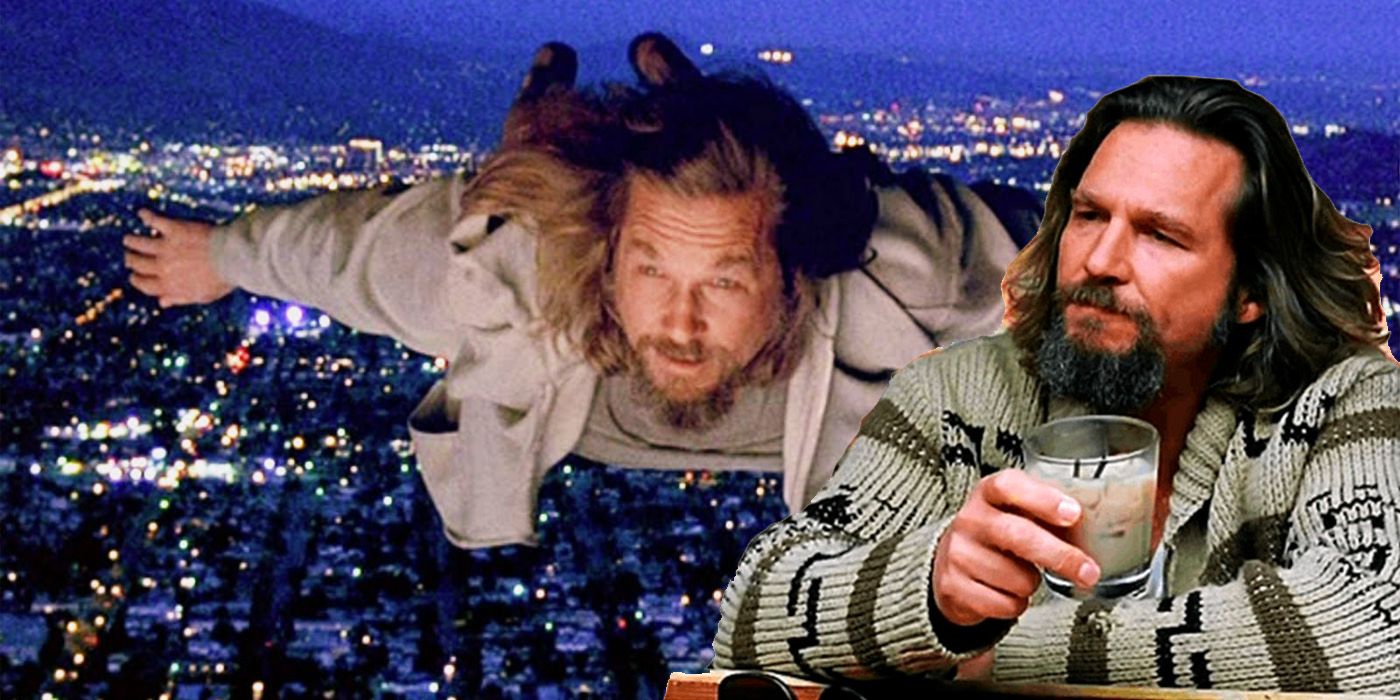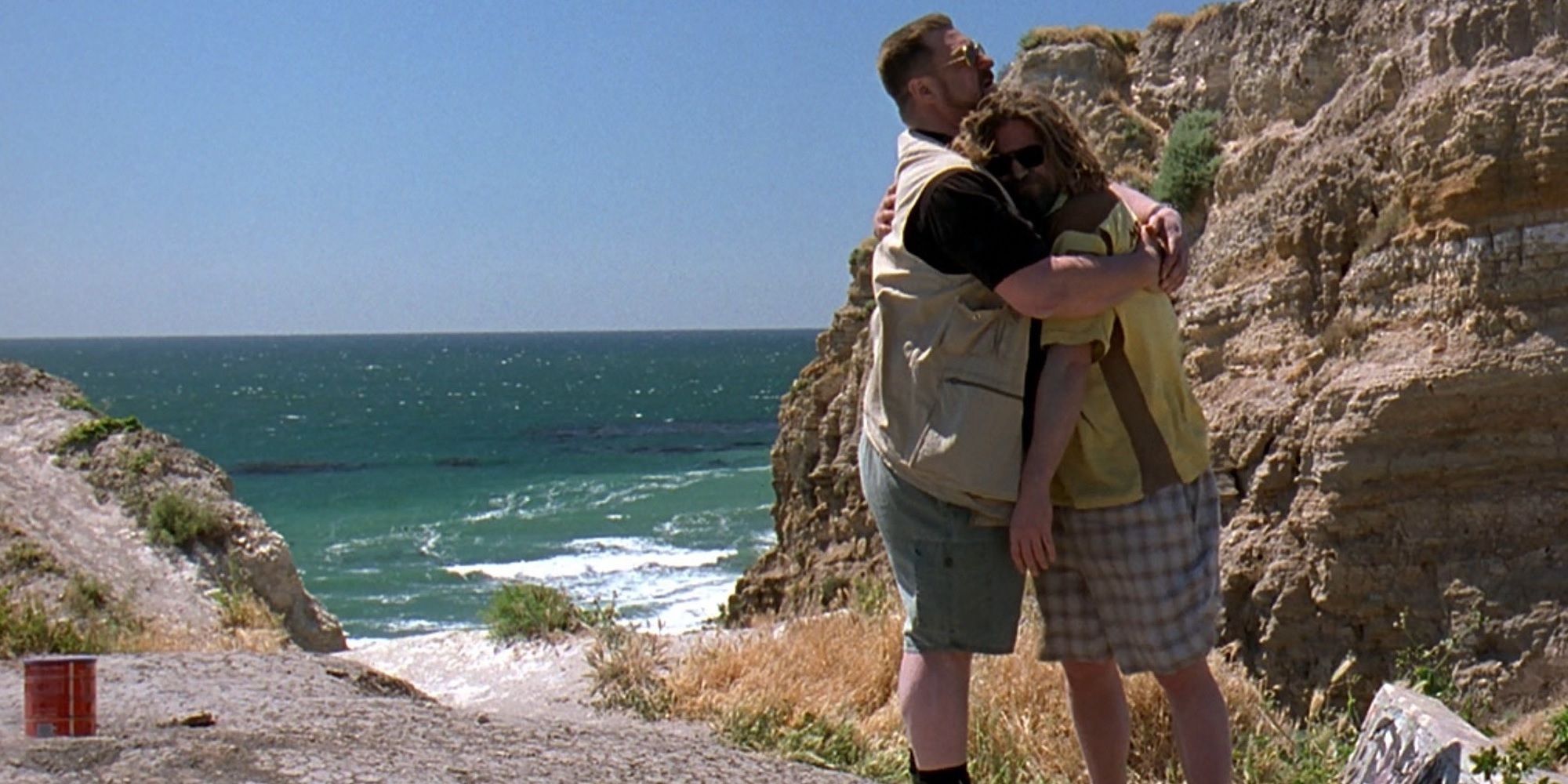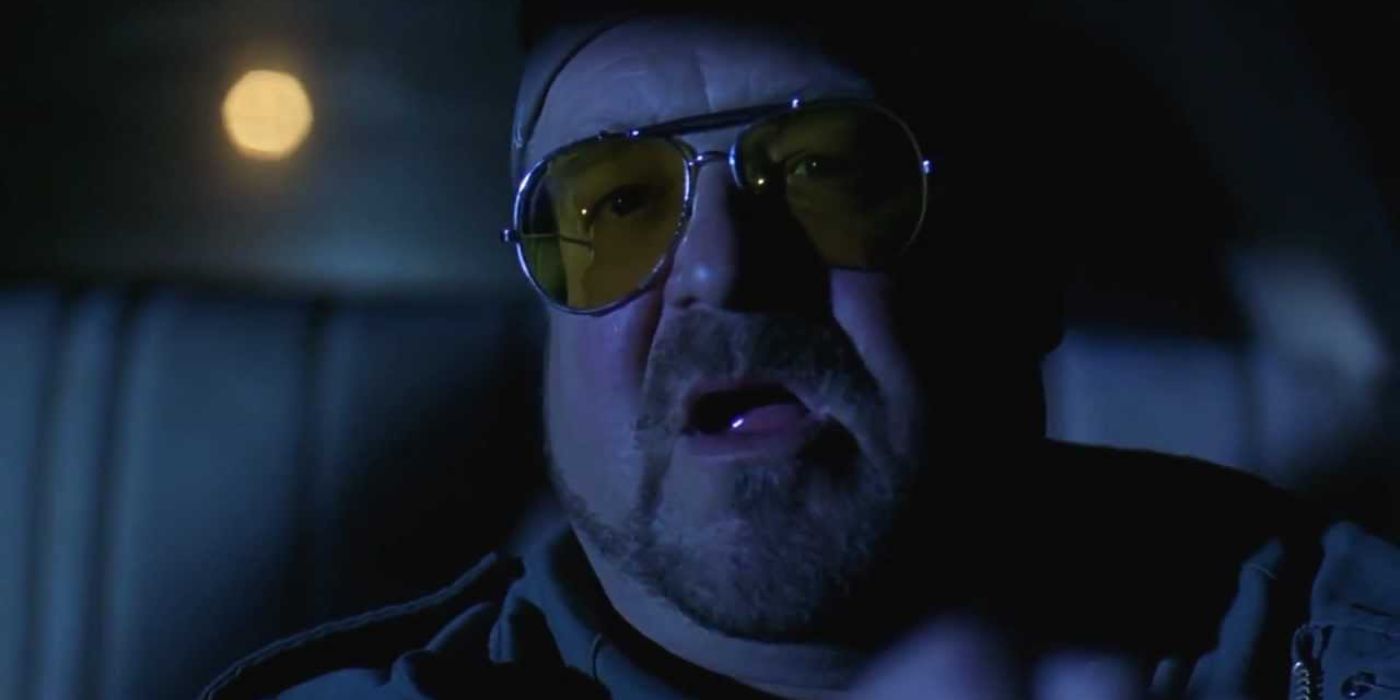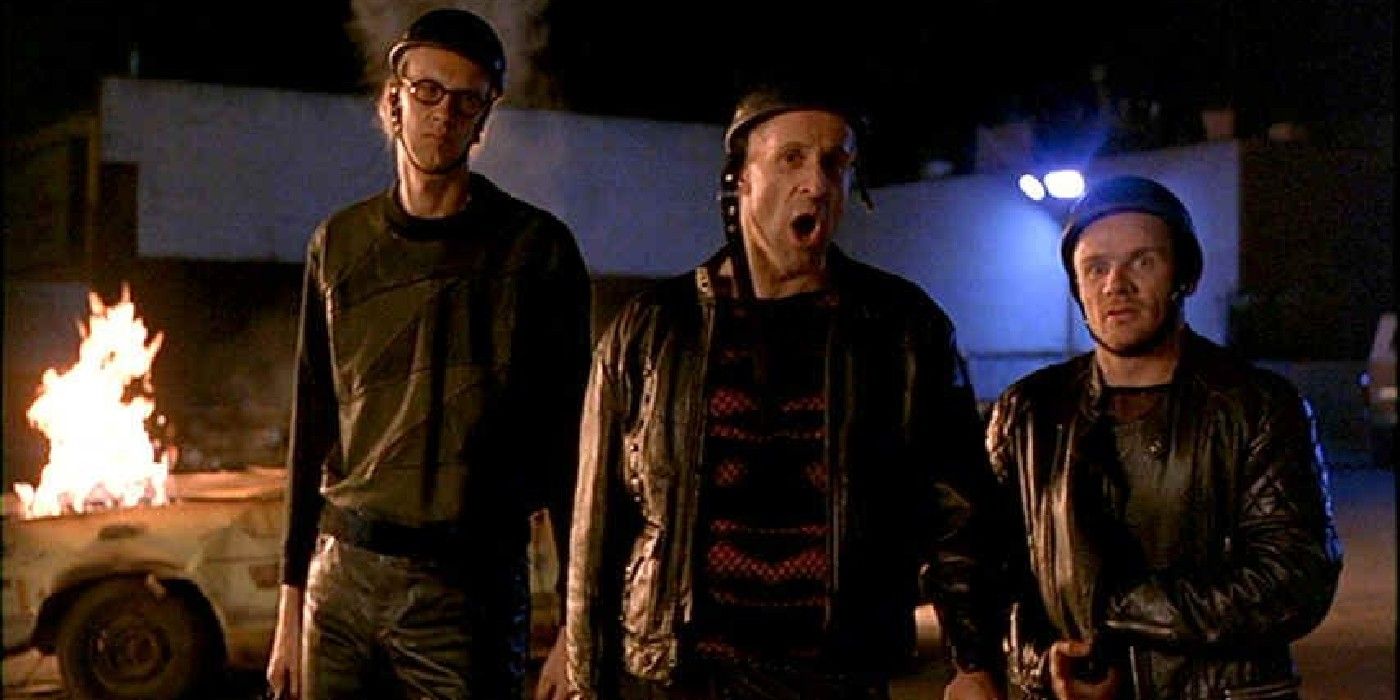The ending of The Big Lebowski is a hot mess unraveled in the tidiest way possible. A succession of absurd storylines collide in the final moments of the 1998 Coen brothers film, and the trio Walter, Donny, and the "Dude" are drastically pushed out of their uneventful lives to deal with millionaires, nihilists, pederasts, and even their own selves. Given its chaotically aimless nature, The Big Lebowski can be labeled as a "plotless" movie with not many relevant conflicts going around; the film's trump card is precisely dealing with a series of seemingly irrelevant issues as they push the characters into an unrelenting state of disarray.
The Big Lebowski is an impeccable genre exercise that challenges conventional storytelling in an accessible fashion, and the film's ending showcases the feat perfectly by flirting with tear-jerking dramas without giving up on its slacker comedy. Moreover, crime films seem to be the Coen brothers' specialty, and The Big Lebowski explores many of the genre's elements without fully jumping into it, quickly turning into a satire as the threats and foes nearly get as close to accomplishing the damage the protagonists make to themselves, building up interesting character dynamics that reach their boiling point once the ending forces the characters to contemplate the mess their thoughtless actions resulted in.
What Happens In The Big Lebowski Ending And Why
The Big Lebowski's ending is a typical case of multiple people trying to get the upper hand over one another until the situation snowballs into a point of no return. The Dude stands in the middle of all the confusion completely unaware of the treachery that prompts him into the absurd adventure that follows. After learning from Maude that the rich (big) Lebowski might not be who he seems, the Dude begins to suspect he's been played this whole time by all parties, starting with the millionaire, causing him to summon Walter and head to Lebowski's house where the truth unravels swiftly and, since it's The Big Lebowski, quite stupidly.
As soon as the Dude walks into Lebowski's house, he stumbles upon Bunny fooling around the place and goes straight to Lebowski's office to make things clear. There, he learns the nihilists only came into the picture because they wanted to use Bunny's disappearance as an easy escape to take money from Lebowski, who, in turn, took advantage of the confusion to embezzle money from his own charitable institution, using the Dude as the courier of a transaction that turned out to be as fake as Walter's bag. The truth is revealed, but the Dude knows he can't get anything from it and simply goes back to his routine.
The Big Lebowski ends sadly with one final conflict, which involves the so-called nihilists, the group of Germans who threatened the Dude with a marmot, now back to claim the ransom money that never really got into the Dude's hands. In a hilariously pathetic confrontation, Walter fights the men off in a brutal fashion and triumphs, but Donny suddenly dies from a heart attack. And then there were two, the Dude and Walter, with nothing to do but go bowling. In a final narration from the puzzling Stranger, he tells the audience that Maude did end up getting pregnant, which means there's a little Lebowski on the way.
What Happened To Bunny?
The way The Big Lebowski makes fun of its audience is one of the main reasons it is one of the Coen brothers' best movies. At first, Bunny's disappearance seems to be the film's biggest mystery, and the characters constantly argue about what really happened to her. Theories range from Bunny kidnapping herself in order to extort Lebowski a little more or being held hostage by the unpredictable German nihilists, who proved themselves to be somewhat dangerous. In the end, it's revealed that Bunny simply went out of town without warning anyone, returning unscathed after the nihilists used her disappearance to blackmail Lebowski.
According to the Dude, the severed toe sent by the Nihilist seems to confirm Bunny is in danger, while Walter is sure it could be anyone's missing toe and the Germans are just bluffing. In a later scene, The Big Lebowski's biggest mystery is solved through a tiny detail that can easily be missed: as the nihilists discuss their plan in a diner, there's a quick shot of the female member's foot covered in bandages and with a missing toe. Since Uli Kunkel knew Bunny well, he took advantage of her days out and painted the fake toe just like she used to paint hers.
Was Lebowski's Bag Also A Ringer?
After the Dude is assigned to act as the courier of Bunny's ransom money, Walter decides to exchange the bag of money for a ringer containing his underwear, convinced that Bunny kidnapped herself. The plan was to keep the money for themselves rather than the small courier fee, but the two end up losing the original bag, preventing the Dude and Walter from checking it and realizing it was also a ringer. With the "original" ringer gone, the two are pushed into a state of suspicion knowing they wouldn't have the money if the nihilists came after it, unaware that they wouldn't have it either way.
For starters, Jeffrey Lebowski didn't care about Bunny's fate because he was done with her, which prompted him to hand the Dude a ringer and let the Dude deal with the blackmailers himself, secretly keeping the $1 million and solving two problems at once. Since the original bag didn't contain money and never came to shore, Walter's suspicions over Larry, the teenager whose homework was found in the Dude's car, were unfounded and only made their situation more difficult. Even with all the confusion, the plan comes full circle as the German nihilists turn against the Dude in search of the money as the big Lebowski leaves the situation unharmed.
The Nihilists Explained
The movie's major antagonists, the German nihilists, see Bunny's disappearance as the perfect opportunity to demand money from Jeffrey Lebowski in exchange for the girl, but since all they get is a bag of Walter's underwear, they turn their attention to the Dude and his friends. They are led by Uli Kunkel, played in The Big Lebowski by Peter Stormare, who once starred in a porn video produced by Jackie Treehorn alongside Bunny, which explains the connection between the two. Before getting into crime and nihilism, the group was part of an electronic music band called Autobahn, which they play on the radio during the parking lot fight.
The Real Meaning Of The Big Lebowski's Ending
In its all absurd way, The Big Lebowski seems to encapsulate all the trends and idiosyncrasies that dominated the early '90s in the figure of the Dude, who vividly embodies the slacker culture that grew in the streets and in art simultaneously. In the film's ending, all the oddities of the decade collide in favor of a clever satire that, regardless of all the random atrocities going on, certainly doesn't happen by chance. The nihilist philosophical chain is there for a purpose; it represents the absolute opposite of what the Dude preaches, which is the passivity to the absurdity of life.
The Big Lebowski's nihilists stand for the generational hypocrisy that finds comfort in finding loopholes to exploit people, while the Dude finds peace in his individual vicious cycle, returning to his routine at ease after the circus went down. Such hypocrisy applies to all the peculiar characters the Dude encounters along the way, from Maude's pregnancy scheme to Jeffrey Lebowski's treachery. The Dude passively accepts his burden as if they're mere distractions. In the end, there are those who use, those who accept to be used, and those who die trying to make up their minds. As the Stranger narrates, the Dude "is takin' 'er easy for all us sinners."






.jpg)